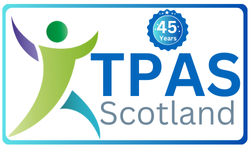Total investment through borrowing in Scottish Registered Social Landlords (RSLs) is now £6.55 billion, says Regulator
The Scottish Housing Regulator has today published a new report on its analysis of RSLs annual loan portfolio returns for the period April 2021 to March 2022.
The report highlights that as well as the existing £6.55 billion borrowing, RSLs plan to increase their borrowing by an additional £1.3 billion over the next five years. It also states that interest rates are now at their highest level in 14 years and are forecast to rise further. The Regulator’s report highlights that 27% of RSLs’ total loan debt outstanding at the 31 March 2022 is on a variable interest rate, and every 1% increase would increase annual interest charges by around £13 million.
Speaking of the report, Shaun Keenan, Assistant Director of Financial Regulation, said:
“Our analysis shows that lender and investor appetite for lending to RSLs remained high despite disruption caused by COVID-19 and the ongoing economic uncertainty and volatility. At 31 March 2022, RSL liquidity in general remained robust but, there is no doubt, that landlords are facing major challenges in their operating environment.
“Landlords are having to operate in an environment which includes significant cost inflation, rising interest rates, increasing requirements on quality of homes – including on energy efficiency and zero-emissions heating, and a huge demand for support from tenants who are facing genuine financial hardship.
“And, of course, there is also the potential for government intervention on rents as the Scottish Government considers whether to cap increases in social rents from April 2023. All of this has the potential to impact on RSLs’ ability to service current debt and raise new debt.
“With landlords working in this complex landscape, it has never been more vital that RSLs adequately plan for their treasury management requirements, taking account of interest rate risk, and managing their relationships and communication with funders.”
